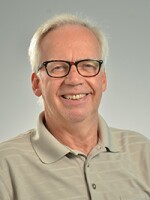The Kansas City Royals have the core of their World Series championship team back from last year, and their minor league prospects are finding it a difficult task to make the team’s opening day roster.
They’ll make their final roster moves this week before opening the 2016 season Sunday night at Kauffman Stadium against the New York Mets.
Royals prospect Brett Eibner was one of the early roster casualties this spring, so his wait will continue. Eibner, an outfielder and a second-round draft choice by the Royals in 2010, is 27, older than Eric Hosmer. Yet, he hasn’t tasted the big leagues, while younger guys like speedster Terrance Gore, have gotten a chance.
“It just makes me work harder really. It does you no good to sit there and sulk about it,” says Eibner. “I want to be there just as bad, so if anything’s going to push me more to figure out what my weaknesses are and (I’ll) work on them. Try to get better. That way I’m more prepared for the big leagues.”
Eibner graduated from The Woodlands High School, outside Houston, Texas, well-known nationally for graduating top-notch baseball players. A prime example is Paul Goldschmidt, an All-Star first baseman for the Arizona Diamondbacks. But some of the best athletes from The Woodlands don’t always make it to the big leagues.
Ron Eastman, the baseball coach, rates Eibner ranks high on the list of players he’s coached.
“He was, I guess you could say, a pretty raw athlete, but he’s one of the best athletes we’ve ever had at The Woodlands High School,” says Eastman.
Royals assistant general manager J.J. Picollo says dealing with disappointments in spring training is one of his primary functions.
“It’s one of those things you’ve got to meet head on and be honest with the players,” says Picollo.
"Tell them where they stand and really try to get them to recover as quickly as possible because, if they get too lost in the disappointment, they lose out on days that they can get better and be prepared in case that opportunity comes.”
Former Royals outfielder Brian McRae remembers paying his dues. He was trying to break into an outfield anchored by Willie Wilson and Bo Jackson. Though 17 years old and a first-round draft choice out of Blue Springs High School when he signed with the Royals, McRae spent six years in the minors. McRae says he braced himself for the chance he’d be in a different clubhouse.
“The thing that they (Royals management) kept telling us in the minor leagues was that you’re auditioning for all the other teams in Major League Baseball,” says McRae. “Even though it may look like Bo Jackson was ahead of me and other people. At the big league level, they were grooming you to play in the big leagues and it might not be for the Royals.”
That’s what happened with second baseman Johnny Giavotella, another second round draft choice (2008) of the Royals. Giavotella shuttled between Kansas City and the minors for four years. Finally, at the age of 27, he had a chance to play in the big leagues every day with the Los Angeles Angels. Angels manager Mike Scioscia liked what he saw from Giavotella in spring training.
“You look at the energy he brought in everything he did, what a presence he was in every situation whether it was running the bases or putting the ball in play or hitting the ball in the batter’s box,” says Scioscia. “He really, really looked good in spring training last year."
In every spring training there are a couple of players whose chances of making the team are a long shot, but impress the coaching staff. Brian Flynn, a left-handed relief pitcher from Wichita State, seemed destined to make the 2015 team. But veteran pitcher Ryan Madson turned out to be the surprise, and Royals manager Ned Yost says interest in Madson from other teams forced the team's hand.
“There were three teams that wanted him, so it’s like we’ve got a decision to make. Do we gamble and hope that Madson plays out?” says Yost. “We knew Flynn had options, so we decided to keep Madson. It turned out to be a great decision. Brian Flynn got hurt real early (in the season), but he should have made this team last year.”
This year, Flynn came to spring training healthy, but still failed to make the team. On the other side of the coin, outfielder Paulo Orlando made last year’s opening day roster at 29. Piccolo says Orlando’s situation gives hope for other Royals prospects entering their late 20s.
“We’ve got some good depth in the outfield, similar to Paolo. They’re sort of late developers. Guys who are really starting to hit stride at 26, 27 years old,” says Picollo. We’ve been patient with them. We know they have tools. We know they have ability, so once in a while you see it happen.”
But the Royals prospects and management both know that the clock is ticking.






